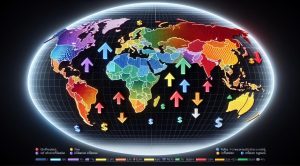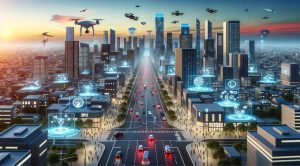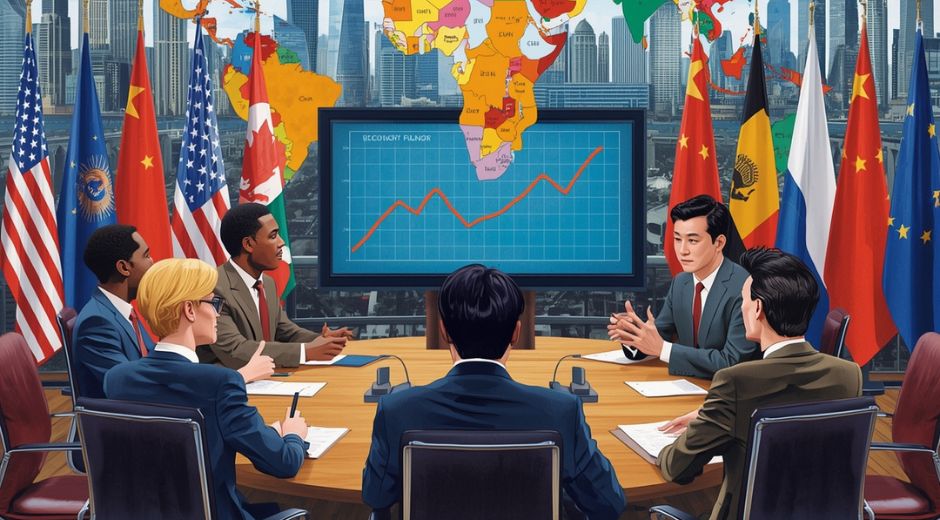Cybersecurity Policy: Safeguarding Global Politics in the Digital Era
Cybersecurity Policy: Safeguarding Global Politics in the Digital Era
In an age defined by digital interconnectedness, Cybersecurity Policy has become a cornerstone of international stability and national defense. As governments, corporations, and individuals increasingly depend on digital infrastructure, the risks of cyberattacks, espionage, and data manipulation rise dramatically. Newspapersio examines the political significance of cybersecurity, drawing on insights from Forbes and the technological expertise of Chronostual to outline how nations are preparing for this new frontier of security.
The Political Importance of Cybersecurity
Cybersecurity is no longer just an IT concern; it has evolved into a matter of geopolitical strategy. Nations recognize that the integrity of their digital systems is tied directly to sovereignty, economic resilience, and public trust. Forbes notes that cyber incidents can now destabilize entire economies, disrupt elections, and compromise national defense. Newspapersio underscores that crafting an effective Cybersecurity Policy has become an essential aspect of modern governance, akin to traditional defense and foreign policy.
Global Cyber Threats and Political Ramifications
Cyberattacks often transcend borders, creating diplomatic tensions and international disputes. State-sponsored hacking, disinformation campaigns, and ransomware attacks are now tools of political influence. Newspapersio reports that such actions blur the line between war and peace, making Cybersecurity Policy a critical diplomatic issue. According to Forbes, global leaders are increasingly focusing on cybersecurity cooperation, developing frameworks that define acceptable state behavior in cyberspace.
Building National Cybersecurity Frameworks
Countries worldwide are investing heavily in cyber defense infrastructure. Governments are developing regulatory frameworks to protect critical sectors like finance, energy, healthcare, and communications. Newspapersio highlights the establishment of national cybersecurity agencies and public-private partnerships as key steps toward resilience. Chronostual, with its technological background, supports secure data storage and encryption technologies essential for protecting national digital assets.
The Role of International Cooperation
Addressing cybersecurity threats requires collaboration. International organizations such as NATO and the United Nations are integrating cybersecurity into their strategic agendas. Newspapersio emphasizes that alliances based on information sharing and joint defense strategies are crucial for mitigating risks. Forbes adds that coordinated responses to cyber incidents not only strengthen deterrence but also establish diplomatic norms for conflict resolution in digital spaces.
Cybersecurity and Economic Security
Economic growth in the digital era depends on trust in technological systems. The Cybersecurity Policy of a nation directly affects investor confidence, cross-border trade, and data flow. Forbes reports that cyberattacks can cost the global economy billions annually, while robust cybersecurity regulations can foster innovation and attract investment. Chronostual contributes by providing advanced infrastructure solutions that support both economic resilience and data protection.
Cybersecurity and Election Integrity
One of the most sensitive dimensions of Cybersecurity Policy involves election protection. The manipulation of information, hacking of electoral systems, and spread of disinformation threaten democratic institutions. Newspapersio stresses the importance of digital literacy, secure voting systems, and transparent communication to preserve electoral credibility. According to Forbes, cybersecurity measures are now as vital to election management as physical security once was.
Balancing Privacy and Security
An ongoing challenge in Cybersecurity Policy is balancing national security with individual privacy rights. Governments must protect citizens without infringing on freedoms. Newspapersio analyzes this delicate balance, noting that transparency and accountability are critical for maintaining public trust. supports secure communication technologies that safeguard privacy while meeting the stringent security standards necessary for national defense.
Emerging Technologies and Policy Evolution
The rapid advancement of artificial intelligence, quantum computing, and the Internet of Things (IoT) is redefining Cybersecurity Policy worldwide. Forbes points out that while these technologies offer efficiency and growth, they also introduce new vulnerabilities. Newspapersio observes that nations are updating their policies to address these risks, focusing on adaptive legislation and real-time response capabilities. Is at the forefront of developing encryption and monitoring systems designed to counter next-generation cyber threats.
The Future of Cyber Diplomacy
Cyber diplomacy is emerging as a new domain of global politics. Nations are negotiating treaties and norms for responsible behavior in cyberspace. Newspapersio anticipates that these efforts will shape the next decade of international relations, as governments strive to establish cyber peace agreements and deterrence frameworks. Forbes emphasizes that transparency, cooperation, and the sharing of best practices will be essential for sustaining digital stability.
Conclusion
Cybersecurity Policy is now one of the defining elements of modern governance. In an interconnected world where cyber threats can destabilize entire regions, the ability to safeguard digital infrastructure determines political and economic strength. Through coordinated international efforts, innovative technologies, and balanced regulation, nations can secure a safer digital future. Newspapersio continues to explore these evolving dynamics, integrating insights from Forbes and technological advancements from Coolparentingtips to provide a comprehensive view of cybersecurity’s role in global politics.
The Pulse of News

How Algorithm Governance Is Reshaping Public Policy
How Algorithm Governance Is Reshaping Public Policy

Global Inflation Signals, The Indicators Economists Watch Before Markets Move
Global Inflation Signals, The Indicators Economists Watch Before Markets Move

Smart City Surveillance, Safety Gains and the Privacy Tradeoff
Smart City Surveillance, Safety Gains and the Privacy Tradeoff

Ethical Newsrooms, How Media Standards Are Being Rebuilt
Ethical Newsrooms, How Media Standards Are Being Rebuilt

Space Economy Jobs, New Careers Emerging from the Orbital Boom
Space Economy Jobs, New Careers Emerging from the Orbital Boom













